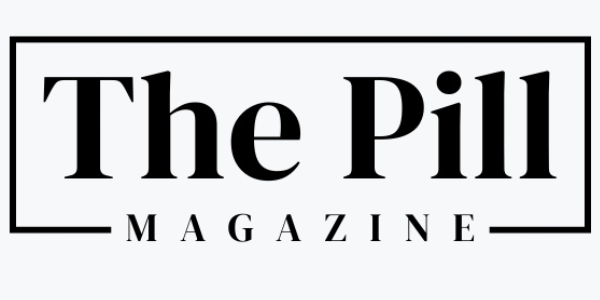In the healthcare industry, where sensitive patient data and compliance regulations are paramount, data security is not just a technical requirement—it’s a critical component that underpins trust, operational integrity, and legal compliance. When implementing Salesforce Health Cloud, an advanced CRM platform tailored for healthcare providers, the role of data security takes center stage.
Healthcare organizations seeking to leverage the benefits of Salesforce Health Cloud often engage with expert providers offering salesforce health cloud implementation services. These specialists understand the unique challenges of protecting Protected Health Information (PHI) while enabling seamless patient engagement and care coordination.
In this article, we explore why data security is a vital consideration during Salesforce Health Cloud implementation and how it shapes the success of healthcare CRM projects.
Understanding the Sensitivity of Healthcare Data
Healthcare data is among the most sensitive types of personal information. It includes medical histories, diagnoses, treatment plans, insurance details, and more. Mismanagement or breaches of this data can lead to severe consequences, including identity theft, loss of patient trust, regulatory fines, and even harm to patient safety.
Salesforce Health Cloud is designed to centralize patient data from various sources, enabling a 360-degree view of patient health. While this consolidation improves care delivery, it also heightens the importance of robust data security protocols to safeguard patient information.
Why Data Security is Integral to Salesforce Health Cloud Implementation
When healthcare organizations invest in salesforce health cloud implementation services, they expect more than just CRM setup—they require a secure, compliant solution that meets stringent regulatory standards such as HIPAA (Health Insurance Portability and Accountability Act) in the U.S., GDPR in Europe, and other regional laws.
Data security in this context involves multiple dimensions:
- Confidentiality: Ensuring patient data is only accessible to authorized users.
- Integrity: Protecting data from unauthorized modification or corruption.
- Availability: Guaranteeing authorized users can access data when needed, without disruption.
- Compliance: Meeting regulatory requirements to avoid penalties and maintain certification.
Failing to embed these security principles into the Salesforce Health Cloud implementation can jeopardize both the technical success and the organization’s reputation.
Key Data Security Considerations in Salesforce Health Cloud Implementation
1. User Authentication and Access Controls
One of the foundational security layers is controlling who can access what data. Salesforce provides robust authentication mechanisms, including multi-factor authentication (MFA), single sign-on (SSO), and role-based access control (RBAC).
A trusted provider of salesforce health cloud implementation services will configure these controls to ensure that doctors, nurses, administrative staff, and third-party partners each have access strictly aligned to their roles and responsibilities. This principle of least privilege limits unnecessary data exposure.
2. Data Encryption
Encryption protects data both at rest and in transit. Salesforce Health Cloud uses encryption to secure PHI stored in databases and communicated between servers and client devices.
During implementation, consultants verify that encryption settings meet or exceed industry standards and integrate with organizational security policies. This step is crucial for compliance and to mitigate risks associated with data interception or breaches.
3. Secure Integration with External Systems
Healthcare organizations often connect Salesforce Health Cloud to other critical systems, such as Electronic Health Records (EHR), billing platforms, and telehealth applications.
Ensuring secure API connections, data transfer protocols, and authentication between these systems is essential. Salesforce health cloud implementation services include auditing and securing integrations to prevent vulnerabilities that could compromise sensitive data.
4. Audit Trails and Monitoring
Maintaining detailed logs of data access, changes, and system activity helps detect suspicious behavior and supports compliance audits.
A comprehensive implementation includes configuring Salesforce Shield or other monitoring tools to enable real-time alerts and forensic analysis. This proactive approach helps healthcare organizations respond quickly to potential security incidents.
5. Data Backup and Disaster Recovery
Uninterrupted access to patient data is critical for effective healthcare delivery. A well-designed Salesforce Health Cloud implementation incorporates reliable backup strategies and disaster recovery plans.
By ensuring data redundancy and quick restoration capabilities, providers minimize downtime and data loss, protecting both patient care continuity and organizational reputation.
The Role of Salesforce Health Cloud Implementation Services Providers
Given the complexity and sensitivity of healthcare data, many organizations turn to specialized salesforce health cloud implementation services to ensure security is not an afterthought but a foundational pillar of the CRM deployment.
These experts bring:
- Regulatory Knowledge: Deep understanding of healthcare compliance requirements tailored to different regions.
- Security Best Practices: Proven methodologies for implementing access controls, encryption, and monitoring aligned with industry standards.
- Risk Assessment: Identifying potential vulnerabilities early in the project lifecycle and recommending mitigation strategies.
- Training and Change Management: Helping staff understand security protocols and ensuring adherence through ongoing education.
- Post-Implementation Support: Continuous security monitoring, audits, and updates to adapt to evolving threats.
Partnering with such experts not only accelerates deployment but also significantly reduces the risk of costly data breaches and compliance violations.
Challenges and Solutions in Securing Salesforce Health Cloud
Challenge: Balancing Security and Usability
Healthcare providers need quick access to accurate patient data. Excessive security controls can hinder workflows and frustrate users, leading to workarounds that jeopardize security.
Solution: Skilled consultants design granular access controls and intuitive user experiences that maintain security without sacrificing usability. Role-based views, smart permissions, and user training help strike this balance.
Challenge: Managing Third-Party Access
Vendors, insurance companies, and partner organizations often require data access, increasing the attack surface.
Solution: Implementing stringent third-party access policies, including time-limited access and activity monitoring, helps mitigate this risk.
Challenge: Keeping Up with Regulatory Changes
Healthcare regulations continuously evolve, requiring systems to adapt rapidly.
Solution: Ongoing support from salesforce health cloud implementation services providers ensures that security configurations stay current and compliant.
Conclusion
Data security is the backbone of any successful Salesforce Health Cloud implementation. In an industry where trust and compliance are non-negotiable, embedding robust security practices from day one is essential. Whether through access controls, encryption, secure integrations, or continuous monitoring, safeguarding patient information protects both the organization and those it serves.
Engaging expert salesforce health cloud implementation services providers ensures that your healthcare CRM solution is not only powerful and user-friendly but also secure and compliant. This holistic approach helps healthcare organizations unlock the full potential of Salesforce Health Cloud while confidently managing their most valuable asset—their patient data.






